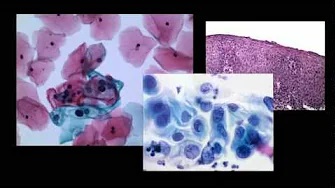Document Type
Article
Publication Date
2-1-2020
Abstract
Inherited protein C (PC) deficiency increases risk of venous thromboembolism (VTE) by 5 to 10-fold in thrombosis-prone families; however, heterozygous PC deficiency alone does not determine that a subject has thrombophilia. Protein C deficient subjects, who lack additional inherited risk factors such as factor V Leiden or have no major acquired risk factors, may not suffer from VTE. In addition, PC deficiency may be acquired, often due to vitamin K antagonist treatment or liver disease. In contrast, homozygous or compound heterozygous PC deficiencies are rare and serious disorders, and affected infants are often in families with no history of PC deficiency or thrombosis. Laboratories commonly use the chromogenic PC assay to diagnose deficiency. Chromogenic assay is recommended due to its good specificity, but this assay fails to detect the rare type 2b deficiency where the defect is due to poor interaction with calcium ions, phospholipid, protein S, and factor Va and factor VIIIa. The clotting-based assay of PC is capable of detecting type 2b deficiency but it has reduced specificity. Importantly, PC level varies with age, adult reference ranges cannot be applied to babies or children and levels may not reach those of adults even in adolescence. Pre-analytical variables in the specimen affect measurement of PC, and can be assay-dependent; for example, a partially clotted sample will have falsely raised PC level by chromogenic assay but reduced level by clotting-based assay. Direct oral anticoagulants falsely raise PC level in the clotting-based assay but the standard chromogenic assay is unaffected.
Recommended Citation
Cooper PC, Pavlova A, Moore GW, Hickey KP, Marlar RA. Recommendations for clinical laboratory testing for protein C deficiency, for the subcommittee on plasma coagulation inhibitors of the ISTH. J Thromb Haemost. 2020 Feb;18(2):271-277. doi: 10.1111/jth.14667. PMID: 31999059.

